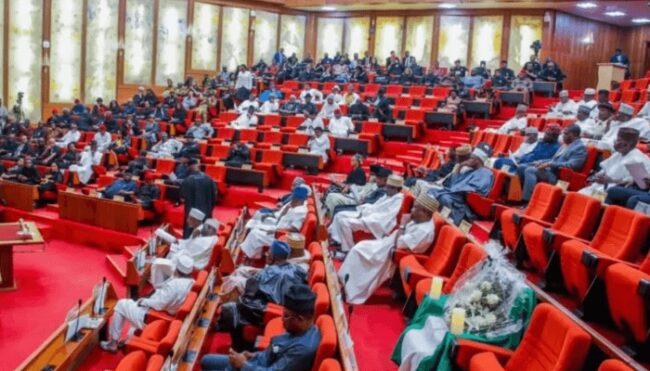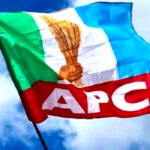The Senate has just approved a $500 million loan request by the Federal Government.
The money will be used by the Bureau of Public Enterprises for “metering Nigerians” for the supply of electricity to their homes.
Why we suspended Zamfara APC Chairman — Ward exco
According to the Ministry of Power, over 92 million Nigerians have yet to be metered.
However, following the defence of the borrowing, the Senate on Wednesday gave its approval for the loan in unanimous decision presided over by its Deputy President, Sen. Barau Jibrin.
“The programme development objective of this project is to improve financial and technical performance of electricity distribution companies “, the Senate report said.
The approval came amid dwindling supplies by electricity distribution companies (DisCoS) and protests across the nation over additional hikes in electricity tariffs by government.
The Nigerian Electricity Regulatory Commission (NERC) said as of June 2022, the electricity customer population in Nigeria stood at 12.64million.
It said only 4.89m of the customers (38.7%) had meteres, leaving an unmetered population of 7.78m customers or a metering gap of 62.3%.
Between January and March, 2023, NERC said the country had 12.3m registered electricity consumers. Out of the figure, only 5.3m was metered and 7m of the consumers left without metres.
Other sources, including Price Water Coopers (pwc) had quoted a metering gap ranging from 5.8m to 8m customers.
While Nigeria generates between 3,000megawatts and 4,000megawatts of electricity for its more than 200m population, over 92m of the people have no access to public energy supply.
Speaking at the 7th Nigeria International Energy Summit held in in Abuja a few weeks back,
Minister of Power, Chief Adebayo Adelabu, gave his ministry’s perspective on the issue.
Adelabu said, “Access to electricity is undeniably a fundamental requirement for socio-economic development and it is a pleasure to see so many dedicated individuals and experts gathered here in this hall to discuss strategies and solutions for bridging energy access gas.
“In recent years, significant progress has been made globally in improving access to electricity. However, a substantial portion of the world population still faces challenges in obtaining reliable and affordable electricity.
“Here in Nigeria it is estimated that a whopping 92m people are still suffering from energy poverty, which is over 40 per cent of our estimated population.”
WATCH TOP VIDEOS FROM NIGERIAN TRIBUNE TV
- Let’s Talk About SELF-AWARENESS
- Is Your Confidence Mistaken for Pride? Let’s talk about it
- Is Etiquette About Perfection…Or Just Not Being Rude?
- Top Psychologist Reveal 3 Signs You’re Struggling With Imposter Syndrome
- Do You Pick Up Work-Related Calls at Midnight or Never? Let’s Talk About Boundaries






